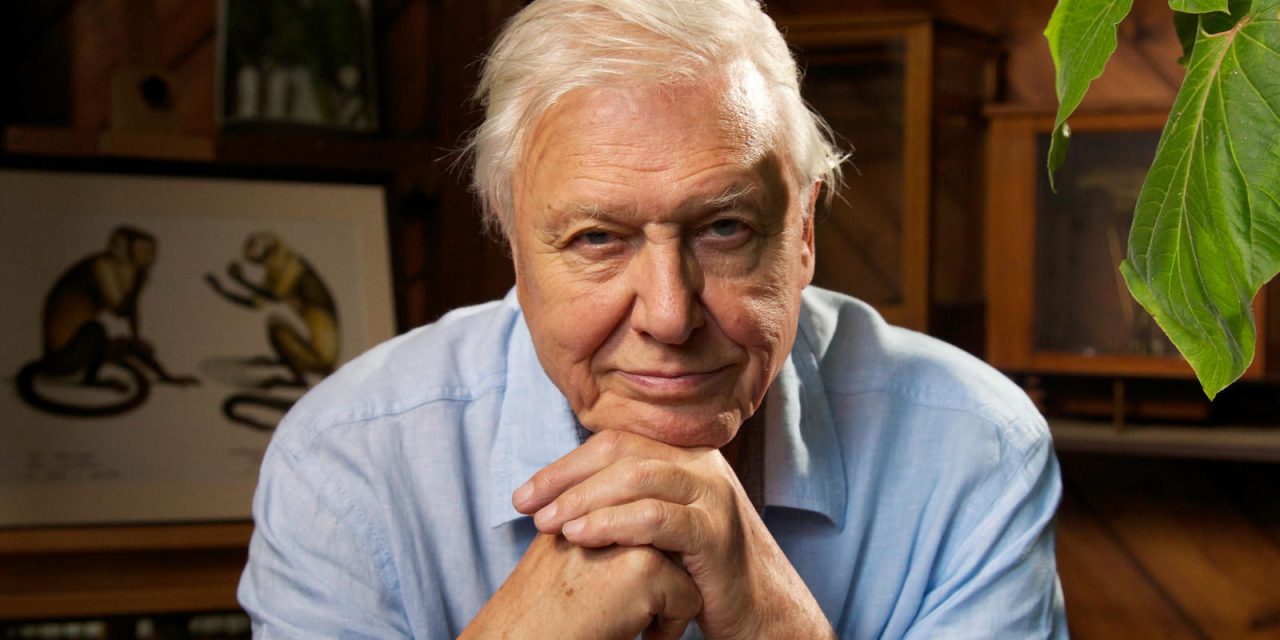From filmmakers and artists to architects and entrepreneurs, Condé Nast Traveller has profiled 50 people who are changing the way we think about travel. Here, we look at five of the individuals whose influence is having an impact due to their environmental, socially focused, or philanthropic work…
Photo: The Luvvie
Sir David Attenborough
“We are all part of the deal.” The English broadcaster, writer and naturalist, who turned 92 earlier this year, has spent his career reminding us of the interconnectedness of living things, and has devoted his life to celebrating and preserving wildlife. Noted for his innovative educational television programs, he has written and narrated a succession of award-winning shows on anthropology and natural history, including the Life on Earth series which was watched by an estimated 500 million viewers worldwide, and set the standard for modern nature documentaries. A lifelong commitment to the natural world has also led him towards ecological activism, both on air and offscreen, and the extent of his authority was recently demonstrated after the airing of his Blue Planet II series, which drew attention to the perils of plastic waste and was instrumental in prompting policy changes at the highest levels of government. As Steve King writes, he continues to inspire, to alter the way we look at and think about the world we inhabit.
Massimo Bottura
Chef patron of Osteria Francescana, Massimo Bottura holds three Michelin stars and his restaurant has just returned to the top of the World’s 50 Best Restaurants list. But despite his notoriety, which has inspired many culinary pilgrimages to Modena, Bottura has also established a reputation for his Food for Soul initiative. A passionate political campaigner, he founded the not-for-profit project to fight hunger and food waste, enlisting talented chefs to turn unwanted food into delicious and nutritional meals for the needy. And what began as a concept for a single site in Milan’s Greco quarter, one of the poorest in the city, has now been seeded to other cities, with the creation of the Refettorio Gastromotiva in Rio for the Olympics, which continues to thrive today, and Refettorio Felix in London’s Earls Court which opened last month. A champion of the anti-waste movement, Bottura’s initiative is now influencing menus across the globe.
Leonardo DiCaprio
“Climate change is real, it is happening right now,” declared Leonardo DiCaprio in front of Hollywood and 34 million TV viewers at the 2016 Academy Awards. The actor has long been a keen ecological activist, setting up his namesake foundation in 1998 when he was just 23 to raise awareness, and has since used his platform to draw attention to the world’s environmental issues, distributing many millions to the causes he believes in. Like Carmen, he is committed to his work with the WWF, and serves on the organization’s board, and his company, Restorative Islands, is building a luxury eco-conscious resort on Blackadore Caye, a small island off the northeastern coast of Belize, a project that’s being driven by DiCaprio's strong environmental and social beliefs.
Photo: Beijing Qiaonyu Foundation,
He Qiaonyu
Spearheading a possible new role for China as a force for change in conservation, Madame He committed $1.5 billion to conservation efforts around the world last October via her Beijing Qiaonyu Foundation, possibly the largest amount ever committed by a single donor to conservation causes. Hailing from Zhejiang Province in eastern China, she acquired her wealth though her work as a prolific landscape planner in Beijing, and since 2012 has supported 79 projects in 26 provinces across the country. With half of the world’s dwindling population of snow leopards living in the mountains of China, no less than $20 million of her historic donation was given to Panthera, a wild cat conservation organization, to help protect the species as well as other local animal populations. “We believe that protecting China is to protect the whole Earth,” He told Bloomberg.
Luke Bailes
“Our legacy will be to leave the land in a better state than we found it,” says Luke Bailes. The grandson of James Bailes, who bought 15,000 acres of South African bushveld for hunting trips back in 1925, Luke subsequently presided over the opening of the first Singita safari lodge on the site in 1993, and today has 12 camps and lodges across South Africa, Zimbabwe and Tanzania. Dedicated to environmentally conscious hospitality, sustainable conservation and the empowerment of local communities, Singita sets the standard for safari-lodges, and next month, the portfolio will extend to include Singita Kwitonda Lodge in Rwanda. Located on the border of the Volcanoes National Park, it will help to improve the function of the buffer area between agricultural plots and the habitat of the estimated 320 mountain gorillas that find sanctuary there.
Read the full article on Condé Nast Traveller here.
Related Reading:
Zero Waste Dining: The Future Of Food?
Wellness Tourism: The Growing Trend In Travel






